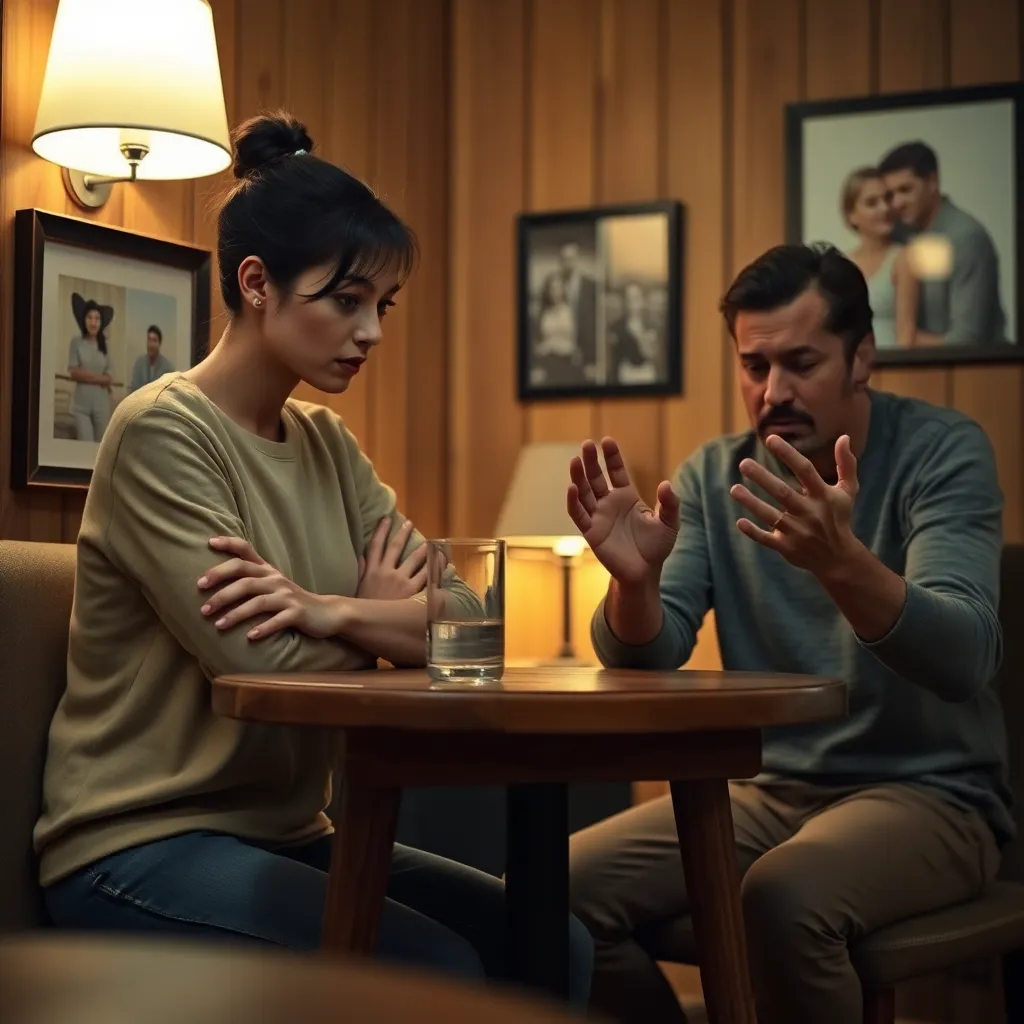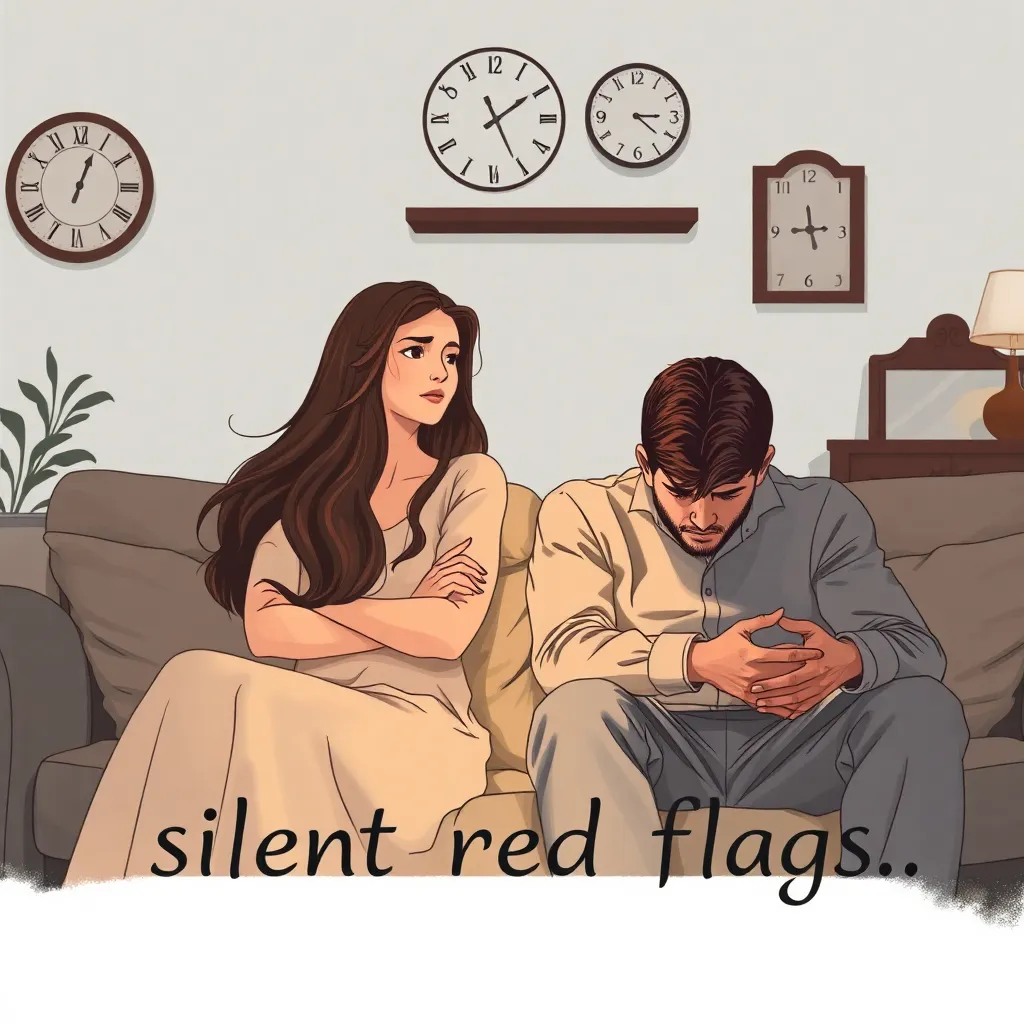Navigating the intricate dynamics of any relationship can be challenging, especially when subtle, silent signals are at play. Have you ever felt like you’re walking on eggshells, unsure why the balance of empathy and accountability seems off? Understanding the silent red flags of playing the victim can be crucial in maintaining a healthy relationship. By recognizing these subtle indicators, you can address potential issues before they grow into larger, more challenging problems.
In this article, we will delve into seven specific signs that may indicate someone is adopting a victim mentality. These insights will empower you with the knowledge to discern these behaviors in your interactions, fostering healthier communication. By learning to identify these patterns, you can cultivate a more compassionate and balanced relationship. This journey towards greater clarity and emotional well-being is not one you have to navigate alone.
We will explore how these red flags manifest in everyday situations, providing practical examples to guide your understanding. With a clearer perspective, you’ll be better equipped to approach your relationships with empathy and assertiveness. Our goal is to help you feel more confident in recognizing and addressing these subtle cues. Together, we can work towards nurturing relationships that are fulfilling and resilient.
1. Constant Blame Shifting

One of the most subtle yet impactful signs of someone playing the victim is constant blame shifting. In relationships, this can look like a partner who never accepts responsibility for their actions, instead deflecting blame onto others. Imagine a scenario where a partner consistently forgets important dates and then accuses their significant other of not reminding them enough. This behavior can create an environment where the true issues are never addressed, leaving both partners feeling frustrated and unheard.
It’s crucial to recognize that blame shifting often stems from a lack of accountability or an inability to self-reflect. Experts suggest that addressing this requires both partners to engage in open and honest communication. Encourage your partner to share their feelings without fear of judgement, and make it clear that you’re willing to listen and help find solutions together. This approach can foster a more supportive atmosphere where accountability is shared, rather than dodged.
To break the cycle of blame, focus on creating a culture of mutual responsibility in your relationship. Set aside time to discuss issues as they arise, ensuring both voices are heard and respected. By doing so, you empower each other to take ownership of actions and work towards common goals. This shift not only strengthens your bond but also nurtures a healthier, more balanced dynamic.
Ultimately, recognizing and addressing blame shifting is essential to fostering trust and understanding. By committing to open communication and shared responsibility, you can overcome this silent red flag and build a stronger relationship. Remember, awareness and empathy are powerful tools in creating lasting change. Together, you can move past the obstacles of blame and towards a more harmonious partnership.
2. Excessive Need for Sympathy

In many relationships, an excessive need for sympathy can subtly manifest, making it difficult to spot immediately. Often, this behavior involves frequent expressions of how unfairly life treats them, seeking constant reassurance and emotional support from their partner.
Consider a scenario where your partner always seems to have a reason to feel wronged or unfortunate, even in minor situations. This persistent need for sympathy can become draining, as it shifts the emotional balance, often leaving you feeling responsible for their happiness.
Experts suggest that while offering support is crucial, it’s equally important to set healthy boundaries to prevent emotional burnout. Encourage your partner to explore their feelings independently and seek solutions rather than solely relying on your empathy.
Ultimately, understanding and addressing this need for sympathy is vital for maintaining a balanced and fulfilling relationship. By fostering open communication and encouraging resilience, you can both work towards a healthier emotional dynamic.
3. Never Apologizes for Mistakes

When someone consistently never apologizes for mistakes, it can be a subtle but significant red flag in a relationship. This behavior often signifies a deeper issue of avoiding responsibility, which can slowly erode trust and intimacy. Imagine a scenario where one partner forgets an important anniversary but instead of apologizing, they shift the blame onto their workload. Over time, this repeated pattern can lead to feelings of resentment and frustration in the other partner, as their emotions and experiences are invalidated.
It’s important to recognize that everyone makes mistakes, and owning up to them is a part of personal growth. However, a partner who plays the victim might twist situations to make themselves appear as the aggrieved party, deflecting any blame. This can manifest in small everyday interactions, such as a minor error in planning an event that turns into a heated argument, with the partner insisting they were overwhelmed by external pressures. Such dynamics can create a toxic cycle if not addressed.
Experts suggest that a reluctance to apologize might stem from a fear of vulnerability or a lack of emotional maturity. Approaching the situation with empathy, you might begin a conversation by expressing how the lack of acknowledgment makes you feel. This can open the door to a more honest dialogue about the need for mutual respect and understanding in the relationship. Encouraging accountability can be a crucial step toward breaking the cycle of victimhood.
Ultimately, addressing the lack of apologies is not just about the words themselves but about fostering a relationship where both partners feel valued and heard. A genuine apology can be a powerful tool for healing and connection, reaffirming your commitment to each other. By focusing on understanding and resolution, you can transform a potential red flag into an opportunity for deeper intimacy and growth.
4. Manipulative Storytelling

Moving onto another subtle red flag is manipulative storytelling, where an individual often weaves narratives that cast themselves as perpetual victims. Picture a partner who recounts every disagreement with friends or family as an epic saga where they are always wronged. This approach can be particularly damaging because it subtly shifts responsibility away from the storyteller, leaving the other party feeling guilty or responsible for their partner’s perceived misfortunes. It’s crucial to recognize this pattern, as it can lead to a dynamic where one partner is constantly trying to ‘fix’ the situation, often at the expense of their own needs.
In many cases, these stories are peppered with exaggerations and omissions that serve to bolster the victim narrative. A classic example might be a partner who omits their own role in a conflict, focusing solely on how they were mistreated. This kind of storytelling can cloud the reality of situations, making it difficult to address underlying issues honestly. By identifying these patterns, couples can work towards more transparent communication and shared accountability.
Experts suggest that this behavior often stems from a deep-seated need for validation and sympathy. By framing events in a way that garners pity, individuals can temporarily boost their self-esteem or gain emotional support. However, this is a short-sighted strategy that can erode trust and intimacy over time. Encouraging open dialogue and fostering a safe space for vulnerability can help, allowing both partners to express their feelings without resorting to manipulation.
Ultimately, the key takeaway is to recognize the pattern of manipulative storytelling and address it with empathy and clarity. Building a relationship based on truth rather than embellished narratives fosters a deeper, more resilient connection. By working together to dismantle these harmful habits, couples can pave the way for a healthier, more supportive partnership.
5. Consistent Self-Pity Speech

In relationships, encountering a partner who frequently engages in consistent self-pity speech can be quietly unsettling. They often weave narratives where they are the perpetual victim, subtly shifting the focus to their perceived injustices.
For instance, a partner might often lament about how everything seems to go wrong for them, regardless of the circumstances. This pattern can lead to a dynamic where their partner feels compelled to provide constant reassurance, creating an imbalance.
When you notice this form of speech, it’s vital to gently address it by encouraging your partner to explore solutions rather than dwelling on problems. This approach helps foster a more balanced relationship where both partners feel heard and supported.
Experts suggest that this behavior often stems from unresolved emotional needs or a lack of self-esteem. By recognizing these underlying issues, partners can work together to build a more nurturing and positive environment.
Ultimately, understanding and addressing this pattern can lead to more meaningful connections. By helping each other grow beyond self-pity, both partners can enjoy a healthier and more fulfilling relationship.
6. Avoidance of Responsibility

In relationships, an *avoidance of responsibility* can be a subtle yet powerful red flag. When one partner consistently deflects blame or refuses to acknowledge their part in conflicts, it often creates a cycle of unresolved issues. Picture this: during a disagreement, one partner consistently insists that the other is always at fault, leaving the partner feeling unheard and invalidated. Over time, this pattern can erode the foundation of trust and communication.
Experts suggest that *taking responsibility* is a cornerstone of a healthy relationship. By acknowledging one’s role in a problem, individuals demonstrate maturity and a willingness to work towards solutions. For instance, instead of saying, “It’s your fault,” try rephrasing it to, “I see how my actions contributed to this, and here’s how I plan to improve.” This approach not only fosters a nurturing environment but also encourages growth and understanding between partners.
In scenarios where one partner consistently shifts blame, it may be helpful to establish clear and open communication channels. Regularly scheduled check-ins can create space for both partners to express concerns without fear of judgment. Encouragingly, many couples find that these conversations, though initially challenging, strengthen their relationship over time.
Ultimately, avoiding responsibility can create a disconnect that is challenging to overcome. Yet, with consistent effort and a commitment to personal growth, couples can transform potential conflicts into opportunities for deeper connection. Remember, taking responsibility is not about assigning blame—it’s about building a partnership rooted in mutual respect and empathy.
7. Drama Creation in Conflicts

In some relationships, one partner might create unnecessary drama during conflicts to shift attention away from the core issue. This tactic often serves to cast themselves as the victim, diverting focus from their role in the problem.
Recognizing these patterns can be difficult, especially when drama becomes a frequent occurrence. For instance, a partner might escalate a minor disagreement into a major argument, allowing them to deflect responsibility and gain sympathy.
Experts suggest that this behavior may stem from a need for validation or a fear of facing underlying issues. By creating drama, they can avoid dealing with uncomfortable emotions, masking their own insecurities or guilt.
To address this, approach conflicts with a calm and supportive demeanor, focusing on solutions rather than the theatrics. Encourage open communication and set boundaries that discourage unnecessary drama.
Ultimately, understanding the underlying reasons for drama can help both partners work towards healthier conflict resolution. By addressing the root causes, you can foster a more supportive and empathetic relationship environment.
Conclusion: Creating Beautiful Outdoor Spaces
In the journey to nurturing fulfilling relationships, recognizing subtle warning signs is crucial. This article explored seven silent red flags where one partner consistently plays the victim, including avoidance of accountability, emotional manipulation, lack of empathy, passive-aggressive behavior, constant blame-shifting, excessive defensiveness, and a pattern of exaggerating personal woes. Understanding these behaviors can empower you to address underlying issues and foster healthier dynamics.
As a proactive next step, engage in open and honest communication with your partner or a trusted confidant about any concerns. This conversation can be the first step toward rebuilding trust and understanding in your relationship.
Remember, recognizing these silent signals is not just about identifying problems but about paving the way for positive change. Bookmark this article as a valuable resource to revisit these insights whenever you need guidance.
Looking ahead, your commitment to addressing these red flags is a powerful step toward a successful and harmonious relationship. Empower yourself with knowledge, take action, and embrace the journey toward a more fulfilling connection. Your relationships are worth the effort—save this guide as your companion on the path to lasting happiness.
